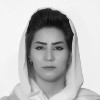Nearly three months after the Ghani-Abdullah's political agreement, the leadership members of the High Council for National Reconciliation are yet to be appointed, something that critics say will affect the next phases of the peace process.
President Ashraf Ghani and his political rival Abdullah Abdullah signed a political agreement on May 17 to end the dispute over 2019 presidential election. Abdullah will lead the High Council for National Reconciliation based on the agreement.
The council, according to the agreement, has five deputies. Two of them are Abdullah’s running mates in last year’s elections. Three of the deputies are yet to be appointed.
The agreement says the council will provide guidance to the negotiation team through its leadership committee. The negotiation team is expected to attend talks with the Taliban that will be held in Doha after completion of prisoners’ release.
The duty of the council is to create national, regional and international consensus on peace, attract international support for peace, and attract international support and assistance for post-peace reconstruction efforts, according to the agreement.
Analysts said that with the completion of the release of the Taliban’s high-value prisoners, the High Council for National Reconciliation is required to move the peace process forward, but a delay in its formation will affect the process.
“Both of them (Afghan political leaders) have monopolized the peace process. They have also monopolized the Presidential Palace. Also, Dr. Abdullah wants everything for himself, but not for peace. We need people with deliberation and motives,” Abrarullah Murad, an MP.
“This is the responsibility of Mr. Abdullah to appoint members of the council by the end of the next week,” said Shahzada Massoud, a political analyst.
The delay in the appointment of members of the reconciliation council, as well as the cabinet, has sparked criticism among residents who say the political leaders are not prioritizing national interests.
A spokesman of the reconciliation council, Fraidoon Khwazoon, said discussions about the appointments of the council have ended.
“The (council) appointments will be officially announced within the next one day or sooner,” Khwazoon said.
“The talks are focused on finalizing the (cabinet) list. Our political allies are expected to introduce qualified people,” said Dawa Khan Menapal, deputy spokesman to president Ashraf Ghani, referring to Abdullah’s office that is expected to send a list of their picks for 50% of the cabinet.
The Presidential Palace this month said that their part of the cabinet has been completed and that they are waiting for a list of cabinet members from Abdullah’s office.


